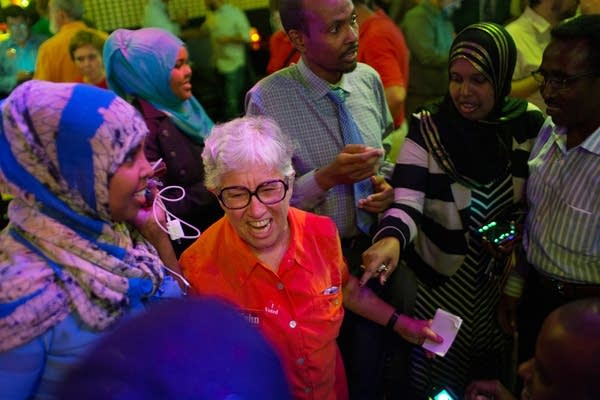Primary 2014: Kahn, Loon hold on to legislative seats

Rep. Phyllis Kahn celebrates her primary win with supporters Tuesday evening at Mattie's on Main in Minneapolis.
Jennifer Simonson / MPR News
Go Deeper.
Create an account or log in to save stories.
Like this?
Thanks for liking this story! We have added it to a list of your favorite stories.


